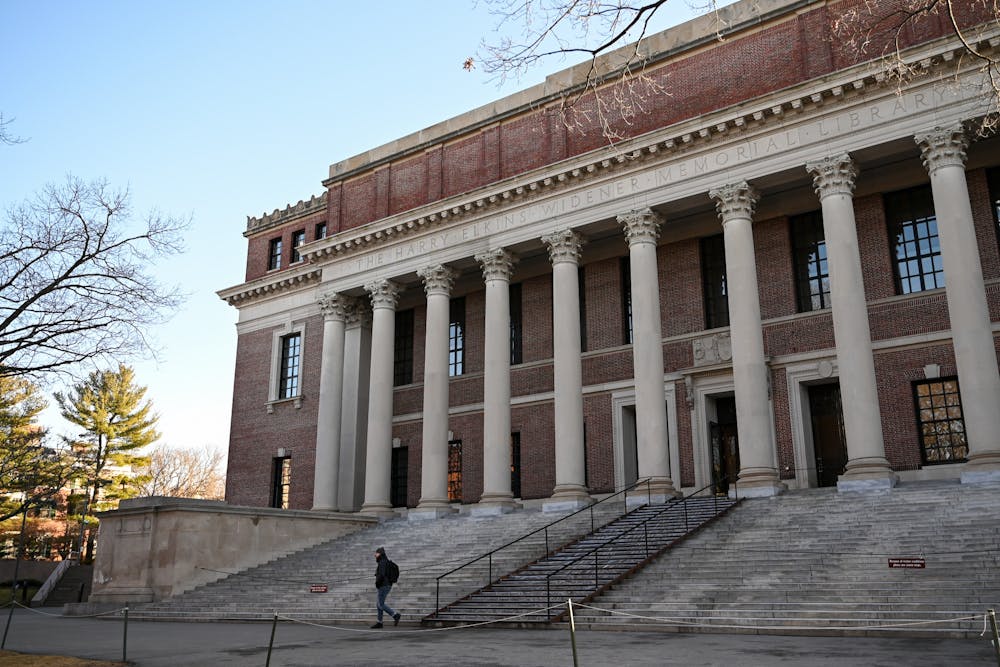Penn joined 23 other leading research universities in filing an amicus curiae brief on Monday supporting Harvard University in a lawsuit against the Department of Health and Human Services over the termination of federal research funding.
The brief — filed on June 9 in the United States District Court for the District of Massachusetts — argues that the funding cuts not only negatively impact Harvard, but threaten the larger academic research community. Five other Ivy League institutions, with the exception of Columbia and Cornell universities, joined Penn in asserting that the funding cuts undermine decades of scientific collaboration and jeopardize the innovation made possible by the partnership between the federal government and the higher education system.
"For decades, these institutions have competed for and received federal funding for scientific research," the brief reads. "They have leveraged those resources, along with investments of their own, to advance scientific knowledge and thereby make Americans more prosperous, healthy, and secure."
Harvard’s case alleges that federal agencies unlawfully halted billions in research funding to pressure the university into altering its governance structure, academic resources, admissions process, and hiring policies. The case is argued on the scientific advancements and contributions to the United States that have come from federal research funding, and how the cuts "imperil" the status of the country as a global leader.
"These cuts to research funding risk a future where the next pathbreaking innovation—whether it is a cure for cancer or Alzheimer’s, a military technology, or the next Internet—is discovered beyond our shores, if at all," the brief reads.
The brief cited Penn's research that contributed to the COVID-19 vaccine being released in "record time" to demonstrate that "the boldest research—with the most potential to redound to humanity’s benefit—depends on public investment." The brief also mentioned Penn Medicine's work that helped develop the world's first personalized gene-editing therapy.
"Terminating funding disrupts ongoing projects, ruins experiments and datasets, destroys the careers of aspiring scientists, and deters investment in the long-term research that only the academy—with federal funding—can pursue, threatening the pace of progress and undermining American leadership in the process," the brief states.
This move comes amid a broader federal attack against many higher education institutions — including Penn. Multiple research programs across the University have continued to face uncertainty following efforts to reduce federal research budgets and impose new restrictions on funding sources. In March, the Trump administration enacted a $175 million funding freeze, citing grievances about the University’s policies regarding transgender athletes in sports.
RELATED:
Penn Board of Trustees votes to raise debt authorization as ‘insurance’ amid financial pressures
Pa. lawmakers discuss research cuts, higher education policy during Philadelphia town hall
In the same month, the federal government abruptly terminated three Penn research grants from the National Institutes of Health, raising concerns among researchers and the broader scientific community about federal interference in the academic community.
Penn’s involvement in the lawsuit aligns with previous high-profile legal battles related to federal policy. In 2022, Penn closely monitored an affirmative action case — Students for Fair Admissions v. Harvard — which raised questions about race-conscious admissions to higher education institutions.
In May, the University joined a separate lawsuit against the National Science Foundation, pushing back against a new cap on indirect cost reimbursements for federally funded research. Penn and several other institutions argued that the policy would severely limit their ability to cover essential infrastructure and administrative expenses tied to major scientific projects.
Penn also expressed support for Harvard after Trump revoked the school's authorization to enroll international students, writing that the decision was "deeply concerning."
RELATED:
Penn Board of Trustees votes to raise debt authorization as ‘insurance’ amid financial pressures
Pa. lawmakers discuss research cuts, higher education policy during Philadelphia town hall
Staff reporter Riana Mahtani covers national politics and can be reached at mahtani@thedp.com. At Penn, she studies political science. Follow her on X @Riana_Mahtani.









